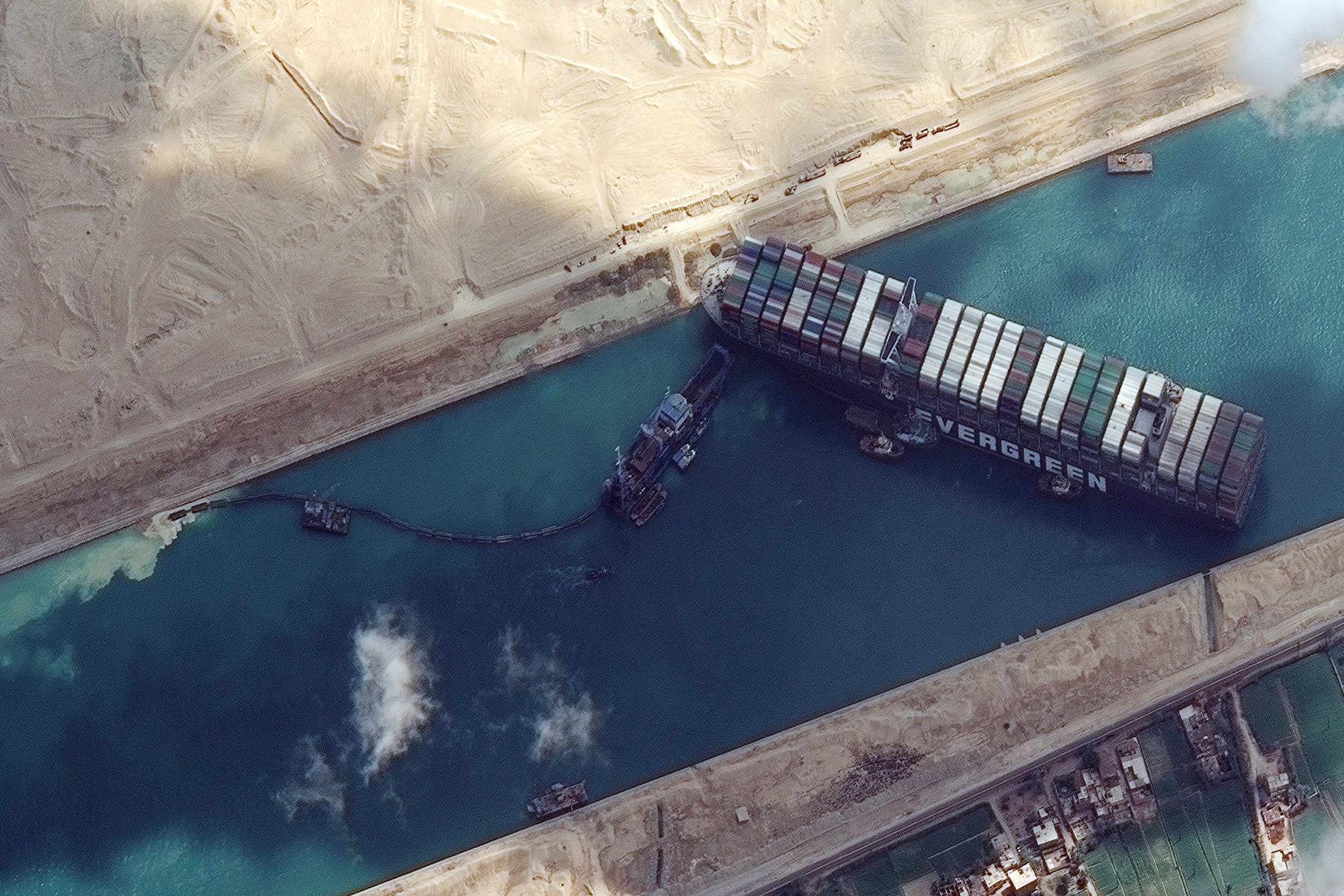Industry
Global supply chain and trade immensely disrupted by weeklong Suez Canal blockade
Despite the Ever Given being refloated in the Suez Canal, experts believe the global supply chain and trade has been immensely disrupted. Shipping traffic through one of the key trade routes in the world, Suez Canal, resumed after the giant vessel that was blocking the busy waterway was refloated.
Around 12% of global trade, according to CNBC, flows through the Suez Canal on massive ships like the one that had run aground. The 400-metre long Ever Given got jammed diagonally across a southern section of the canal in strong winds early last Tuesday, bringing traffic to an abrupt halt on the shortest shipping route between Europe and Asia. Lloyd’s List estimates that more than $9 billion worth of goods passes through the 120-mile waterway each day.
Industry sources said that owners and charterers of delayed ships face at least $24 million in expenses they will be unable to recoup as their insurance policies do not cover them and cargo owners could also face uninsured losses.
Douglas Kent, executive vice president of strategy and alliances at the Association for Supply Chain Management, said it’s definitely going to continue to backlog ports and other delivery mechanisms as a result, and then of course the chaos that disrupts thereafter.
Stephen Flynn, a professor of political science at Northeastern University, said the disruption of a week of this size is going to continue to have cascading effects. “It’s got to be at least 60 days before things get sorted out and appear to be a bit back to normal.” The knock-on-effects include congestion at ports as well as vessels not being in the right place for their next scheduled journey. It further exacerbates supply chains already reeling from a container shortage amid the COVID-19 buying boom.
Flynn noted that this is one of the challenges of a just-in-time system. He said assembly lines will be idled because parts don’t show up when they are expected. “It’s never been stressed this badly before, and its going to take a really long time, and they are just beginning the process of sorting it out, you have essentially created this traffic jam that doesn’t allow you just to reset and restart, you have to restack and reset the system and that’s something that’s going to take a lot of choreography.”
Mark Szakonyi, executive editor of The Journal of Commerce by IHS Markit, highlighted that however long it takes, the damage has been done, with carriers warning to expect months of supply chain disruption and even tighter capacity as Asia imports surge to Europe and North America.

































